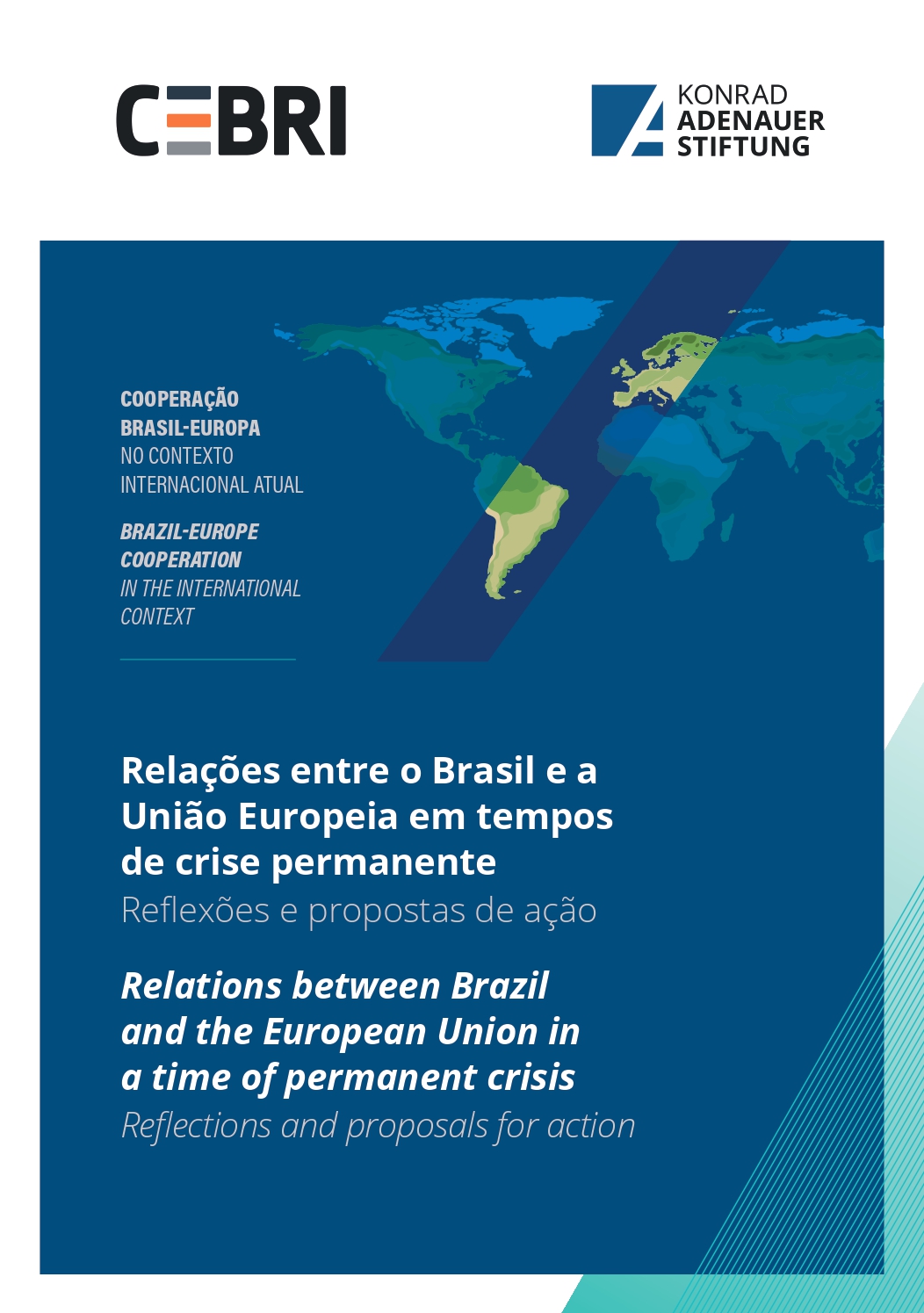Reports
Relations between Brazil and the European Union in a time of permanent crisis: Reflections and proposals for action
- Institutional
- 11 december 2023
The publication "Brazil-EU Relations in Times of Persistent Crisis" provides a comprehensive analysis of the complex relationship between Brazil and the European Union, highlighting the strategic importance of this partnership in a globally crisis-ridden context. The EU, Brazil's second-largest trading partner and the largest foreign investor in the country, plays a crucial role in Brazil's trade balance, while Brazil has emerged as a key supplier of agricultural products to the European bloc.
However, the relationship faces significant challenges amid global crises. Difficulties in ratifying the EU-Mercosur Agreement and disagreements over the Russia-Ukraine conflict in 2022 exemplify the tensions that have developed in recent years. Despite this, cooperation between the two regions remains relevant, with substantial progress in deepening relations, as evidenced by the revitalization of diplomatic ties and the reactivation of the EU-CELAC summit in 2023.
The publication explores four critical areas of this relationship—multilateralism, trade, environmental cooperation, and energy security—identifying barriers to fully realizing the potential of bilateral cooperation and proposing concrete actions to overcome them. It suggests rebuilding and revitalizing dialogue structures, strengthening civil society and academic participation, and focusing on practical, tangible outcomes that benefit both parties. Additionally, it emphasizes aligning political strategies around common goals, particularly in environmental and energy security issues, which are crucial for the stability and advancement of Brazil-EU relations.
Based on a series of events organized by the Brazilian Center for International Relations (CEBRI) and the Konrad Adenauer Foundation (KAS) in Brazil, the document proposes a strategic path to strengthen this long-standing partnership, making it more resilient and adaptable to current and future global challenges.
The publication "Brazil-EU Relations in Times of Persistent Crisis" provides a comprehensive analysis of the complex relationship between Brazil and the European Union, highlighting the strategic importance of this partnership in a globally crisis-ridden context. The EU, Brazil's second-largest trading partner and the largest foreign investor in the country, plays a crucial role in Brazil's trade balance, while Brazil has emerged as a key supplier of agricultural products to the European bloc.
However, the relationship faces significant challenges amid global crises. Difficulties in ratifying the EU-Mercosur Agreement and disagreements over the Russia-Ukraine conflict in 2022 exemplify the tensions that have developed in recent years. Despite this, cooperation between the two regions remains relevant, with substantial progress in deepening relations, as evidenced by the revitalization of diplomatic ties and the reactivation of the EU-CELAC summit in 2023.
The publication explores four critical areas of this relationship—multilateralism, trade, environmental cooperation, and energy security—identifying barriers to fully realizing the potential of bilateral cooperation and proposing concrete actions to overcome them. It suggests rebuilding and revitalizing dialogue structures, strengthening civil society and academic participation, and focusing on practical, tangible outcomes that benefit both parties. Additionally, it emphasizes aligning political strategies around common goals, particularly in environmental and energy security issues, which are crucial for the stability and advancement of Brazil-EU relations.
Based on a series of events organized by the Brazilian Center for International Relations (CEBRI) and the Konrad Adenauer Foundation (KAS) in Brazil, the document proposes a strategic path to strengthen this long-standing partnership, making it more resilient and adaptable to current and future global challenges.


